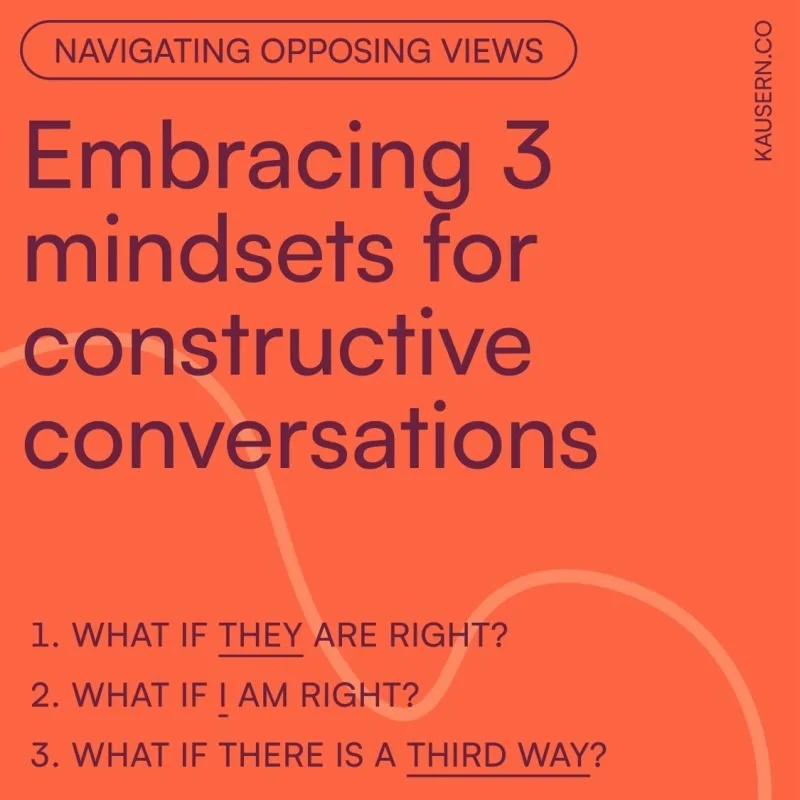Embracing 3 mindsets for constructive conversations
Be it political discourse, workplace clashes, family dinner debates or relationship dilemmas, engaging in conversations with individuals who hold opposing viewpoints can be frustrating. How can we prepare ourselves better before we enter such conversations?
Here are 3 questions we can ask ourselves to initiate a more constructive discussion:
1. WHAT IF THEY ARE RIGHT?
Be willing to entertain the idea that the other party might be right. This approach requires an open-minded stance, acknowledging that our own beliefs may not be infallible.
Practical tips:
> Actively listen - Give the other person our full attention, seeking to understand their perspective without immediate judgement.
> Empathise with their experiences - Put ourselves in their shoes. Understand the beliefs that are driving their actions.
> Ask questions - Encourage the other person to elaborate on their views.
2. WHAT IF I AM RIGHT?
While it's important to consider the possibility that the other person may be right, it's equally essential to affirm the validity of our own perspective. This mindset encourages self-reflection and confidence in our values and beliefs, which will drive our assertive approach during the conversation.
Practical tips:
> Clarify our own values - Understand our core principles that make us, us.
> Communicate with confidence - Express our views articulately, using clear and respectful language.
> Provide evidence - Support our perspective with relevant facts and personal experiences to strengthen our argument.
3. WHAT IF THERE IS A THIRD WAY?
Rather than viewing the conversation as a binary clash of ideas, consider the possibility of finding a middle ground or a third way that incorporates elements from both perspectives. This mindset promotes collaboration and compromise, emphasising shared goals and common ground.
Practical tips:
> Identify common goals - Explore areas where both parties share common interests or objectives.
> Brainstorm solutions - Encourage a collaborative discussion which would address concerns from both sides.
> Foster a spirit of compromise - Be open to adjusting our stance and finding a middle ground that still respects our core values.
To quote Gary Cole, “I don't think anyone sets out to do something bad, it's just that it's very difficult”. Meaning: People generally do not intentionally choose to engage in harmful or unethical actions. Sometimes individuals may find themselves in challenging situations or face difficulties that may lead them to make choices that might be perceived as "bad" or morally questionable.

